Clearly describe the symptoms you’ve noticed. Mention specific noises, warning lights, or driving conditions when the issue occurs. For example, “I hear a squealing sound when I brake” is much more helpful than simply saying, “The brakes feel weird.”
In the age of scam calls, mysterious emails, and fraud schemes, one phone call we often dread but can’t avoid is the one to our mechanic. Whether it’s a strange noise, a flickering warning light, or a complete breakdown, explaining car problems can feel like learning a new language—"car-speak." But don’t worry. With some tips and preparation, you can confidently talk to your mechanic, avoid scams, and ensure you get the best service possible.
Why Communication Matters in Auto Repair
Clear communication can mean the difference between a simple repair and a costly misdiagnosis. Mechanics rely on your description of the issue to diagnose problems accurately. Miscommunication can lead to unnecessary repairs, wasted money, and frustration for both you and your mechanic.
By improving how you describe car issues, you’ll save time, extend your car’s life, and avoid overpaying for car repairs.
Breaking the Language Barrier: How to Explain Car Problems to Your Mechanic
When you visit a mechanic, you don’t need to be fluent in auto repair, but knowing how to describe what’s wrong is essential. Here’s how to do it:
1. Use Descriptive Language
Instead of saying, “My car’s acting weird,” focus on the specific issue. For example:
- "There’s a high-pitched squeal when I brake."
- "The car stutters and stalls at stop signs."
- "There’s a rattling noise when I accelerate."
2. Recreate the Conditions
If the problem happens under certain conditions—cold weather, highway speeds, or after driving for an hour—mention that. It helps the mechanic narrow down potential causes.
3. Note Warning Lights
Warning lights are your car’s way of “talking” to you. Whether it’s the check engine light, oil pressure warning, or ABS light, tell your mechanic what you’ve noticed. Better yet, write down when it started appearing.
4. Demonstrate Noises
If your car makes strange noises, try mimicking them. It might feel awkward, but sounds like "clicking," "knocking," or "whining" can be extremely helpful in diagnosing problems.
5. Bring a Maintenance Log
Keeping track of your car’s service history can provide valuable context. Has it been 10,000 miles since your last oil change? Is your transmission overdue for service? These details can guide your mechanic toward a quicker diagnosis.
Questions to Ask Your Mechanic
Engaging your mechanic with the right questions ensures transparency and builds trust. Here’s what to ask:
- What exactly needs fixing, and why?
- Can you show me the problem?
- What are my options for repair?
- What’s the total cost, including labor and parts?
- Is the repair covered under my car’s warranty or service contract?
Avoiding Common Car Repair Scams
Mechanic scams happen, but you can protect yourself with a few simple steps:
1. Do Your Research
Only work with mechanics who have good reviews and certifications. Search for mechanics near you, check their ratings on Google or Yelp, and ensure they’re certified by organizations like ASE (Automotive Service Excellence).
2. Be Wary of Unsolicited Offers
If someone calls you offering a car repair service out of the blue, it could be a scam. Legitimate repair shops don’t cold-call.
3. Get a Written Estimate
A written estimate protects you from surprise charges. Ask your mechanic to break down costs for labor, parts, and additional fees.
4. Second Opinions Save Money
If a diagnosis or repair cost seems suspiciously high, get a second opinion from another shop. This can confirm the issue and possibly save you hundreds of dollars.
Understanding Your Car’s Warranty
Before authorizing repairs, check if they’re covered by your car’s warranty or a service contract. Noble Quote offers coverage for unexpected breakdowns, which can save you significant money. Whether it’s a powertrain issue or electronic system failure, a vehicle service contract ensures you’re not paying out of pocket for major repairs.
Tips to Build a Strong Relationship with Your Mechanic
Be Honest About Your Car’s History
If your car has skipped maintenance or been in an accident, let your mechanic know. Hiding information can lead to improper repairs.
Stay Engaged
Ask questions, request explanations, and listen to your mechanic’s advice. A collaborative approach fosters trust.
Follow Up
After a repair, follow up to confirm everything is working smoothly. Your feedback helps mechanics improve their service.
What to Do Before Calling a Mechanic
- Do a Quick Troubleshoot Some issues are simple to fix, like replacing a blown fuse or tightening a loose gas cap.
- Research the Problem Use online resources like forums, YouTube, or NobleQuote’s Learning Center to understand potential causes of the issue.
- Prepare Your Questions Be ready with a list of symptoms, warning lights, and questions.
How to Find a Trustworthy Mechanic
- Look for certifications like ASE or AAA approval.
- Read online reviews and ask for recommendations from friends or family.
- Visit the shop to assess cleanliness, professionalism, and equipment.
Conclusion
Talking to your mechanic doesn’t have to be intimidating. By understanding how to describe issues, asking the right questions, and avoiding scams, you’ll navigate car repairs like a pro. Remember, car maintenance is about communication and trust—and Noble Quote is here to make protecting your vehicle easier.
For more tips on car care and warranty coverage, visit our Learning Center.
Everything You Need to Know About Talking to Your Mechanic and Avoiding Common Car Repair Mistakes
How do I explain car problems to my mechanic?
What questions should I ask my mechanic before agreeing to a repair?
Ask these key questions:
- What exactly needs to be fixed and why?
- Can you show me the problem?
- What are the repair options and costs?
- Is this covered by my warranty or service contract?
- Are the parts new, used, or refurbished?
What are the most common mistakes people make when talking to a mechanic?
Some common mistakes include:
- Not providing enough detail about the problem.
- Failing to ask for a written estimate.
- Authorizing repairs without understanding what’s being done.
- Ignoring recommendations for preventive maintenance.
How do I avoid overpaying for car repairs?
- Get a second opinion if a quote seems too high.
- Research the average cost of the repair online.
- Request a detailed breakdown of labor and parts costs.
- Use a trusted mechanic with good reviews and certifications.
How can I find a mechanic I can trust?
Look for mechanics certified by organizations like ASE (Automotive Service Excellence). Check online reviews on Google or Yelp, ask for recommendations from friends, and visit the shop to assess its professionalism and transparency.
What should I do if I think my mechanic is overcharging me?
Politely ask for a detailed explanation of the charges. Compare the quote with other local shops or online resources. If something feels off, don’t hesitate to get a second opinion.
What should I bring to a mechanic when my car needs repairs?
Bring a written list of the symptoms or issues you’ve noticed, your car’s maintenance history, and details about any warranties or service contracts. This information can help the mechanic diagnose and address the problem more efficiently.
How can I describe car noises to my mechanic?
Use descriptive terms like “squealing,” “rattling,” “grinding,” or “knocking.” If possible, demonstrate the noise or play a recording of it. The more specific you are, the easier it will be for your mechanic to diagnose the issue.
What are some red flags to watch for at an auto repair shop?
Red flags include:
- Unwillingness to provide a written estimate.
- Pressure to authorize unnecessary repairs.
- No clear certifications or licenses displayed.
- Poor online reviews or customer complaints.
Is it better to fix car issues yourself or go to a mechanic?
For basic tasks like replacing wiper blades or checking fluids, DIY is often fine. For complex problems involving the engine, transmission, or electronics, it’s best to consult a professional mechanic to avoid causing more damage.
Suggestions for you
Read MoreLet’s work together
Every week we showcase three charitable organizations that our donations are sent to. Our clients are able to choose which of these three will receive their gift when they add coverage to their vehicle...


 Selling Your Soul for an Extended Car Warranty (And Why They Keep Calling)
Selling Your Soul for an Extended Car Warranty (And Why They Keep Calling) Level Up Your EV Charging Knowledge: A Guide to Charger Types
Level Up Your EV Charging Knowledge: A Guide to Charger Types Bumper to Bumper Extended Warranty: What Does it Really Mean?
Bumper to Bumper Extended Warranty: What Does it Really Mean? Is Cruise Control REALLY Saving You Fuel? The Truth Revealed
Is Cruise Control REALLY Saving You Fuel? The Truth Revealed Boost Your EV's Range: Tips and Tricks for Maximum Mileage
Boost Your EV's Range: Tips and Tricks for Maximum Mileage What to Do When the Dealership Makes Warranty Cancellation a Hassle
What to Do When the Dealership Makes Warranty Cancellation a Hassle Why Can’t I Include My Warranty in My Car Financing? Answers to Your Top Questions
Why Can’t I Include My Warranty in My Car Financing? Answers to Your Top Questions Car Safety Technology: How Advanced Driver-Assistance Systems (ADAS) Are Changing the Game (and Your Insurance Rates)
Car Safety Technology: How Advanced Driver-Assistance Systems (ADAS) Are Changing the Game (and Your Insurance Rates) Skip the Dealership: The Rise of Online Car Buying
Skip the Dealership: The Rise of Online Car Buying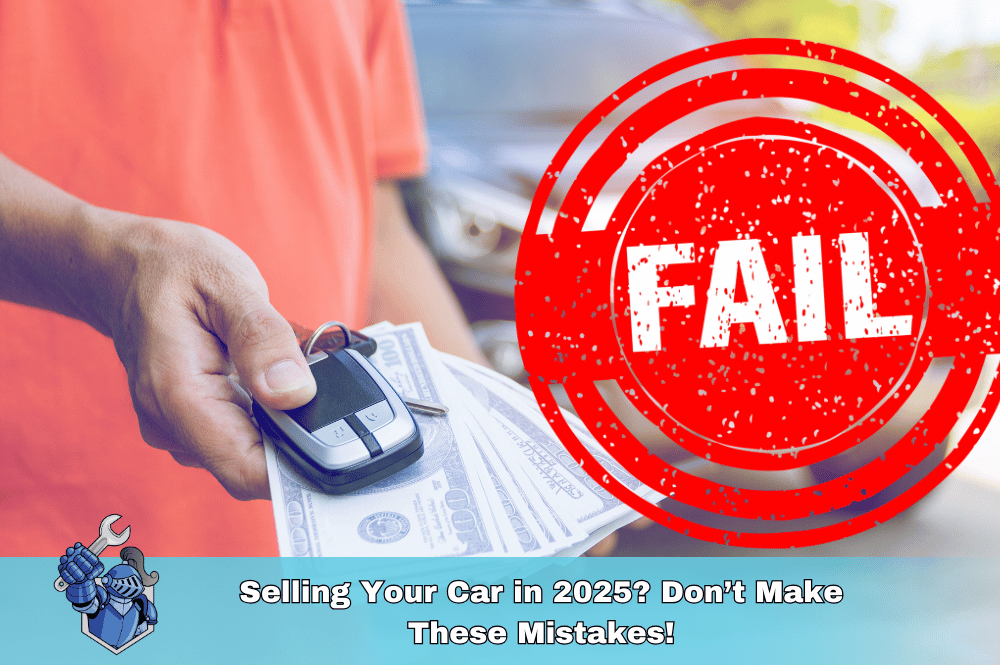 Selling Your Car in 2025? Don’t Make These Mistakes!
Selling Your Car in 2025? Don’t Make These Mistakes!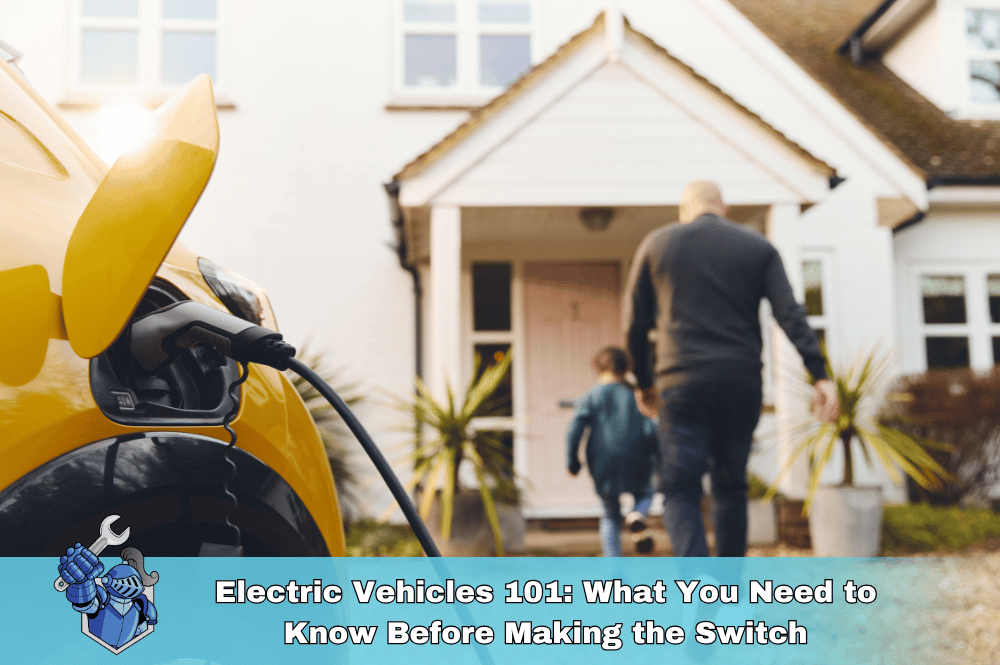 Electric Vehicles 101: What You Need to Know Before Making the Switch
Electric Vehicles 101: What You Need to Know Before Making the Switch Save on Car Repairs: NobleQuote vs. Toco Extended Warranty Review
Save on Car Repairs: NobleQuote vs. Toco Extended Warranty Review Car Scratches Driving You Crazy? 10 Steps to Fix Them Yourself
Car Scratches Driving You Crazy? 10 Steps to Fix Them Yourself Why Your Headlights Are Turning Yellow (And How to Prevent It)
Why Your Headlights Are Turning Yellow (And How to Prevent It) That Annoying Hemi Tick: Why It Happens & How to Stop It
That Annoying Hemi Tick: Why It Happens & How to Stop It Zombie Apocalypse Survival Tip #1: Get an Extended Warranty (Brains Not Included)
Zombie Apocalypse Survival Tip #1: Get an Extended Warranty (Brains Not Included) 'Tis the Season to Be Jolly... and Protected: Why an Extended Warranty is the Gift That Keeps on Giving
'Tis the Season to Be Jolly... and Protected: Why an Extended Warranty is the Gift That Keeps on Giving The Car Repair Lottery: Are You Feeling Lucky?
The Car Repair Lottery: Are You Feeling Lucky? Extended Warranty Secrets: Unlocking Surprising Perks You Didn’t Know Existed!
Extended Warranty Secrets: Unlocking Surprising Perks You Didn’t Know Existed! Car Trouble? Your Insurance Might NOT Cover This!
Car Trouble? Your Insurance Might NOT Cover This! Off-Roading vs. Overlanding: What’s the Difference?
Off-Roading vs. Overlanding: What’s the Difference? Should You Buy a Truck? The Ultimate Pros and Cons List
Should You Buy a Truck? The Ultimate Pros and Cons List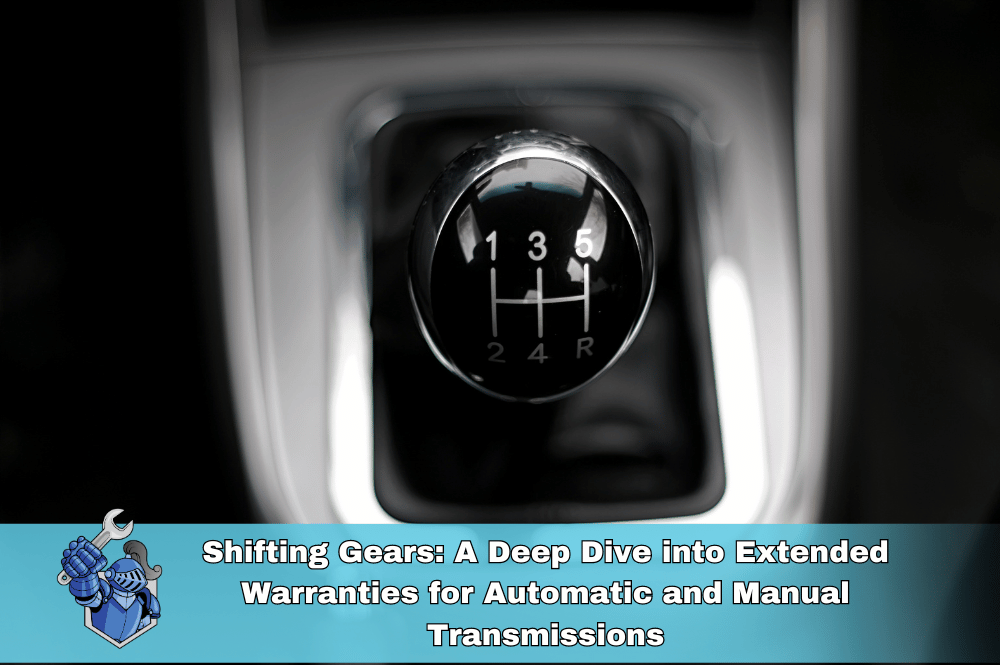 Shifting Gears: A Deep Dive into Extended Warranties for Automatic and Manual Transmissions
Shifting Gears: A Deep Dive into Extended Warranties for Automatic and Manual Transmissions Looking for the Perfect Gift for a Car Enthusiast? Try These 10 Puzzles
Looking for the Perfect Gift for a Car Enthusiast? Try These 10 Puzzles What is an ASE Certified Mechanic? (And Why Should You Care)
What is an ASE Certified Mechanic? (And Why Should You Care) Rules of the Road: Your Ultimate Guide to Safe Driving
Rules of the Road: Your Ultimate Guide to Safe Driving The Ultimate New Driver's Guide: Everything You Need to Know to Hit the Road with Confidence
The Ultimate New Driver's Guide: Everything You Need to Know to Hit the Road with Confidence Revving Up the Excitement: Unveiling the Magic of Disney Pixar's 'Cars'
Revving Up the Excitement: Unveiling the Magic of Disney Pixar's 'Cars'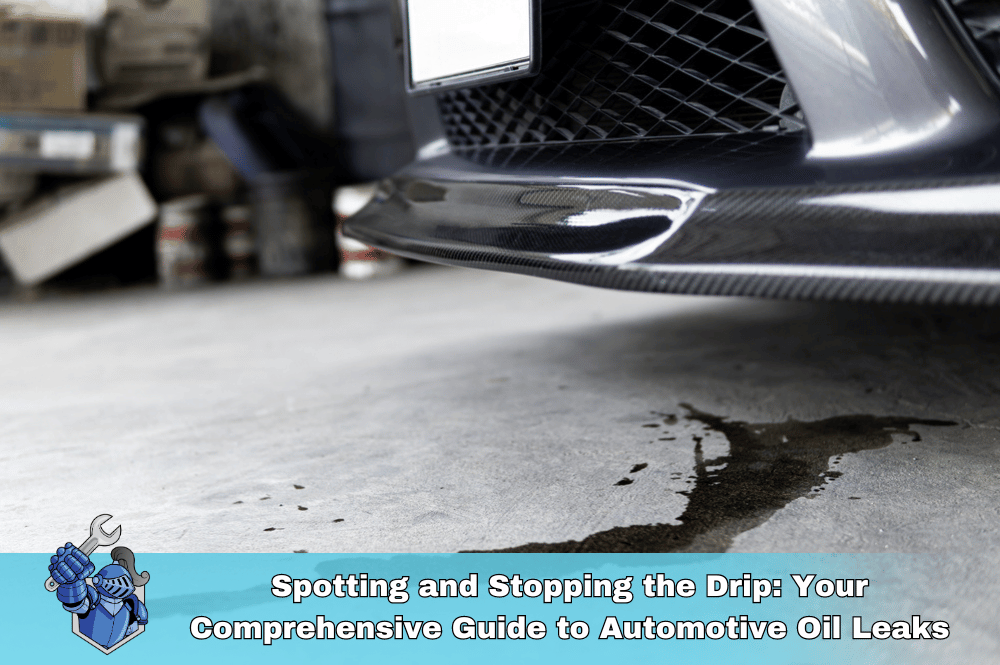 Spotting and Stopping the Drip: Your Comprehensive Guide to Automotive Oil Leaks
Spotting and Stopping the Drip: Your Comprehensive Guide to Automotive Oil Leaks Electric vs. Gas Cars: The Ultimate Showdown for the Future of Driving
Electric vs. Gas Cars: The Ultimate Showdown for the Future of Driving How Many Miles Can an Engine Really Last? The Definitive Guide
How Many Miles Can an Engine Really Last? The Definitive Guide The Ultimate Guide to Automotive Wraps: Everything You Need to Know
The Ultimate Guide to Automotive Wraps: Everything You Need to Know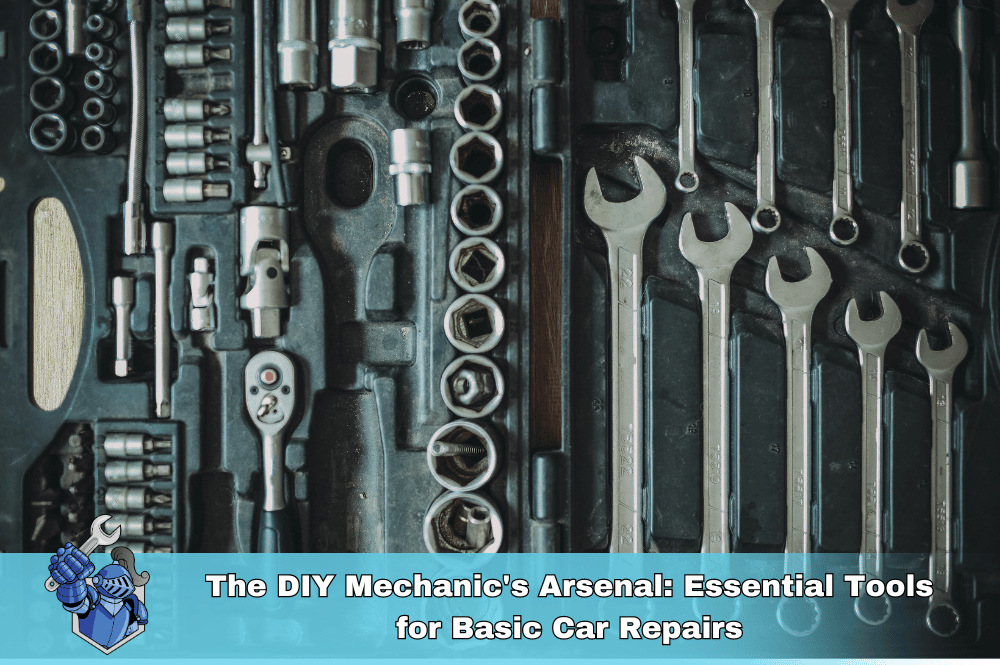 The DIY Mechanic's Arsenal: Essential Tools for Basic Car Repairs
The DIY Mechanic's Arsenal: Essential Tools for Basic Car Repairs Dealer vs. Local Mechanic: Where Should You Take Your Car for Repairs?
Dealer vs. Local Mechanic: Where Should You Take Your Car for Repairs? Stranded on the Sidelines: Your Essential Guide to Roadside Breakdowns & Staying Safe
Stranded on the Sidelines: Your Essential Guide to Roadside Breakdowns & Staying Safe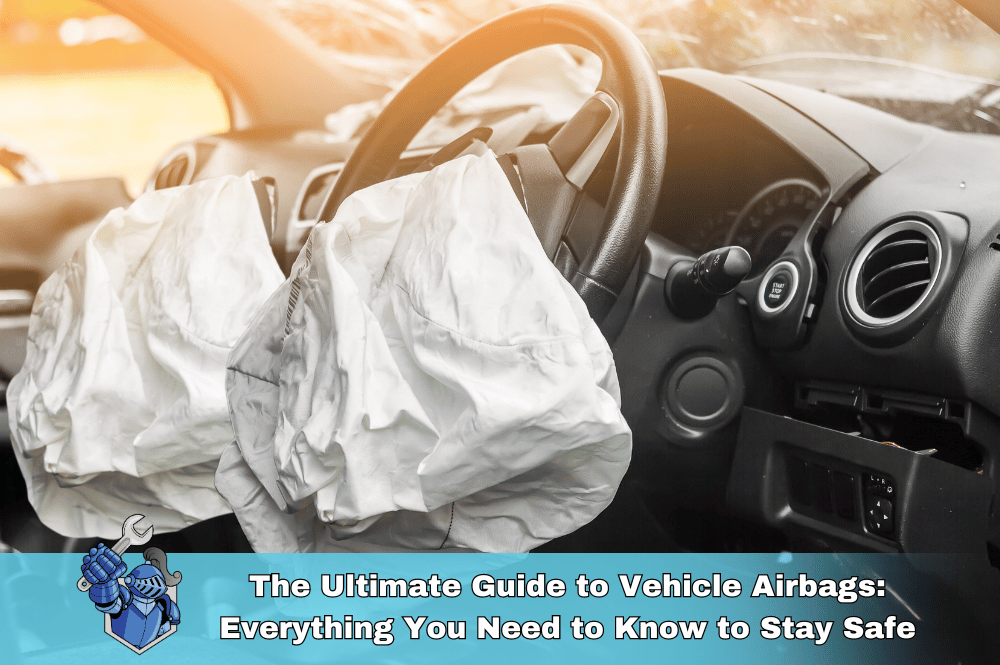 The Ultimate Guide to Vehicle Airbags: Everything You Need to Know to Stay Safe
The Ultimate Guide to Vehicle Airbags: Everything You Need to Know to Stay Safe How to Choose the Best First Car for Your Teen in 2024: A Parent's Guide
How to Choose the Best First Car for Your Teen in 2024: A Parent's Guide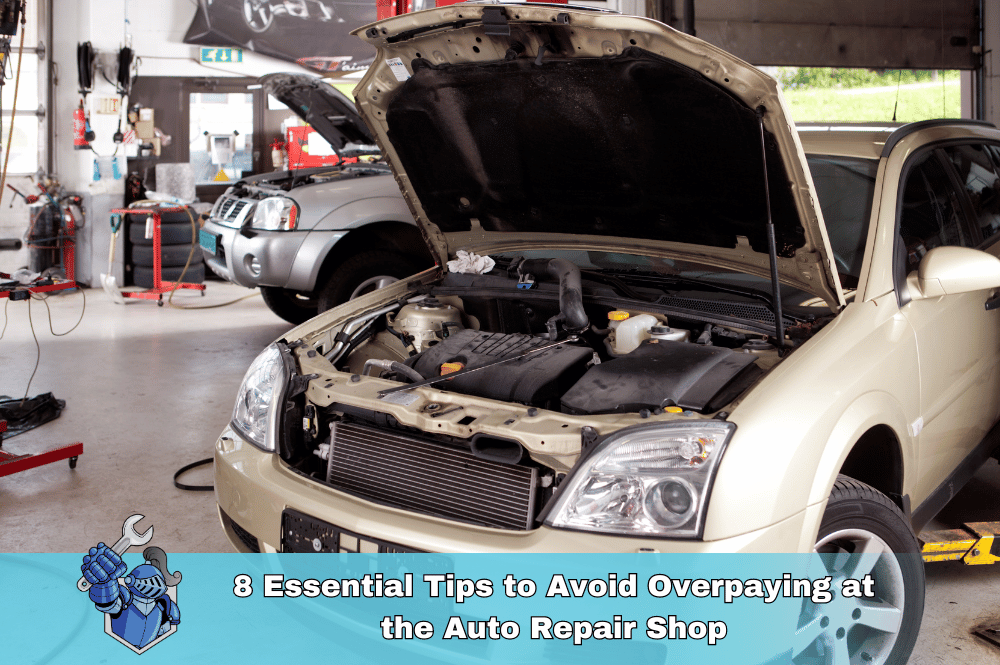 8 Essential Tips to Avoid Overpaying at the Auto Repair Shop
8 Essential Tips to Avoid Overpaying at the Auto Repair Shop Are Lift Kits Covered Under Your Truck’s Extended Warranty? Key Info for Lifted Trucks
Are Lift Kits Covered Under Your Truck’s Extended Warranty? Key Info for Lifted Trucks How to Replace Your Car Key Battery Tips Costs and More
How to Replace Your Car Key Battery Tips Costs and More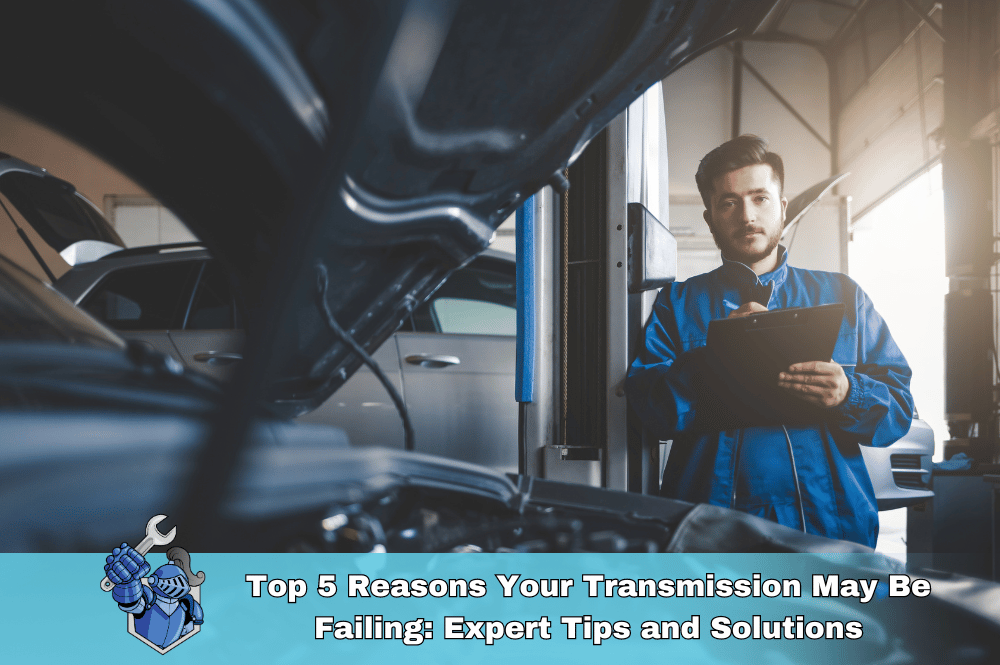 The Essential Guide to Car Maintenance: How to Keep Your Vehicle Running Smoothly
The Essential Guide to Car Maintenance: How to Keep Your Vehicle Running Smoothly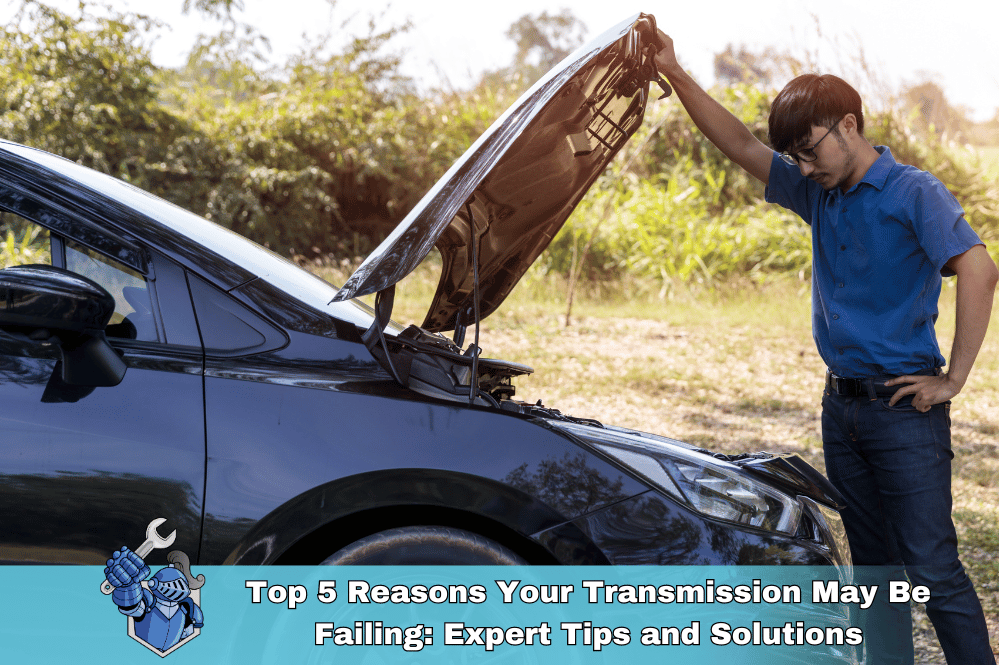 Top 5 Reasons Your Transmission May Be Failing: Expert Tips and Solutions
Top 5 Reasons Your Transmission May Be Failing: Expert Tips and Solutions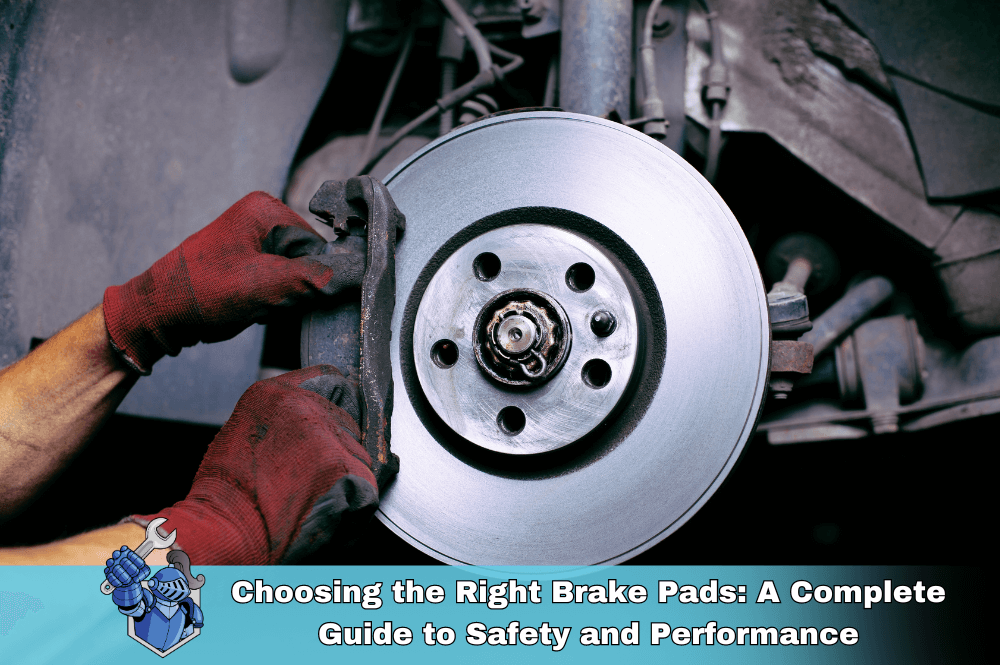 Choosing the Right Brake Pads: A Complete Guide to Safety and Performance
Choosing the Right Brake Pads: A Complete Guide to Safety and Performance

